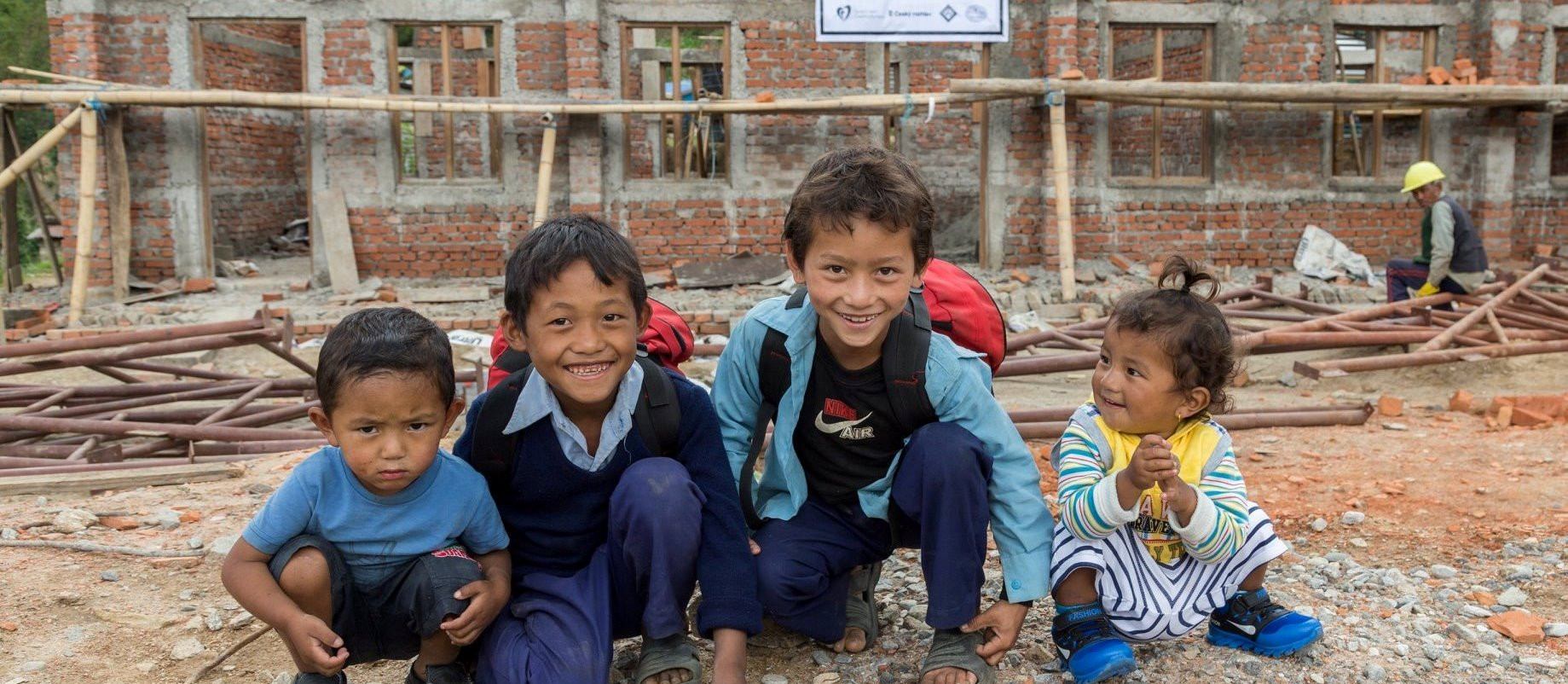
International
We are a non-governmental, non-profit organization founded on the ideals of humanism, freedom, equality and solidarity. We work in the fields of humanitarian aid, human rights, education and social work.
People in Need was established in 1992 by a group of Czech war correspondents who were no longer satisfied with merely relaying information about ongoing conflicts and began sending out aid. It gradually became established as a professional humanitarian organization and lately it has grown to include other topics, like human rigths and education on its agenda.
Throughout its existence, People in Need has become one of the biggest non-profit organizations in Central Europe. In addition to humanitarian aid and human rights, it now also targets education and helps people living in social exclusion.
Internationally
The Humanitarian Aid and Development department operates in more than 20 countries in Africa, Asia and Europe. It helps two and a half million people through 200 projects every year. It is by far the largest department of our organization. Originally, the department was focused on helping countries recover from catastrophes and war conflicts but now it also strives to tackle longer-term problems, such as shortage of safe drinking water, restricted access to quality education, poor healthcare services, social exclusion, and environmental degradation.
In areas affected by armed conflicts, such as Syria or Ukraine, we distribute not only food and food vouchers, but also try to help in lasting ways. We support the local markets and farming production, we involve local residents in public works and cooperate with local authorities to secure access to drinking water and garbage collection. We also help keep schools open and help children deal with psychological trauma.
Development cooperation tries to support people in their efforts to take themselves out of poverty. We often follow up on our humanitarian activities with development projects, so we can help prevent future crises or reduce their negative impact. We work on resolving long-term problems, such as lack of access to quality education and healthcare, poverty or deterioration of the environment.
We look for solutions with local residents, partner organizations and state administration, so that things can work in the long-term without our presence. In a number of countries we have focused on malnutrition, which negatively affects not only early development, but a person’s whole life. Another priority is strengthening people’s resilience, so they themselves can deal with disease, impact of armed conflicts and natural disasters. We are also working on a growing problem of inner-city poverty and supporting basic and vocational education.
In development cooperation, it is invaluable to include local residents in our activities, in order for our work to bring about real change. That is why in the countries, where we provide aid, we also try to improve the work of the public sector and support civil society actors, so they can better communicate with their representatives and defend their rights. We try to help the impoverished make use of new technologies and investments, whether it is a farmer in Cambodia, fruit-grower in Georgia or a shepherd in Mongolia.
We are part of Alliance2015, a strategic network of seven European non-governmental organizations engaged in humanitarian aid and development projects.
We provide Human Rights Support activities in more than 10 countries with repressive regimes. Our goals in this regard are to aid politically persecuted persons, support local civil society organizations and draw attention to human rights abuses by conducting various advocacy activities.
We work both in countries with authoritarian regimes, where basic human rights are suppressed, and civil society is paralyzed, as well as in countries going through transformation, where the Czech experience can be an inspiration for a newly developing civil society.
Every year our work helps hundreds of political prisoners and civil society organizations and conducts numerous events. One of them is the Homo Homini Prize which is awarded to individuals who have greatly contributed to the promotion of human rights, democracy and nonviolent solutions to political conflicts.
In the Czech Republic
Our Social Work in the Czech Republic programme contributes to solve social problems which trouble Czech society today. We assist several thousand people a year, and several hundred employees and volunteers work for us. We are helping people with debts – both directly by giving them advice and indirectly by advocating changes in the legal system which is strongly in favour of creditors, lawyers and distrainors, who often demand enormous fees.
Another part of our social work is helping poor and socially excluded families – by giving family consultations and, educating children and youngsters in pre-school clubs, low-threshold clubs and through private tutoring. Beside this, we also offer career advice and assistance for crime victims.
The One World Film Festival is an international film festival focusing on human rights. It has become the most important festival of its kind in the world, screening world premieres to about 120 thousand spectators every year. The festival is based in Prague, but is held in other Czech cities and in Brussels as well.
The festival has also inspired another project – One World in Schools (OWIS). Using audio-visual materials, the project informs Czech students about the key topics of our current world - human rights, ecology, civil society, modern history, and media. Teachers and pupils in more than 3,700 primary and secondary schools work with OWIS materials: approximately half of Czech schools are using our materials.
Our Varianty Educational Programme focuses on education of teachers. It shows teachers different teaching techniques, helps them to communicate certain topics, and provides them with methodological materials and tuition support. In addition, the project encourages family-school dialogue and advocates changes in the Czech school system.
Our Migration Awareness Programme seeks to inform the public about the complicated phenomenon of migration. It does so by publishing analytical studies, organizing events and explaining the topic in the media.
